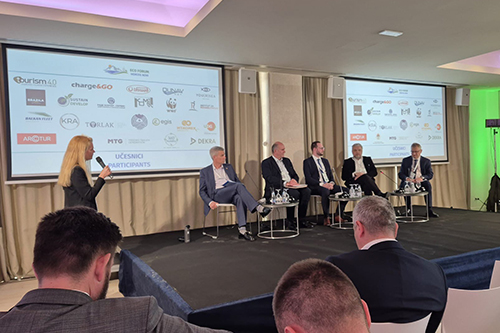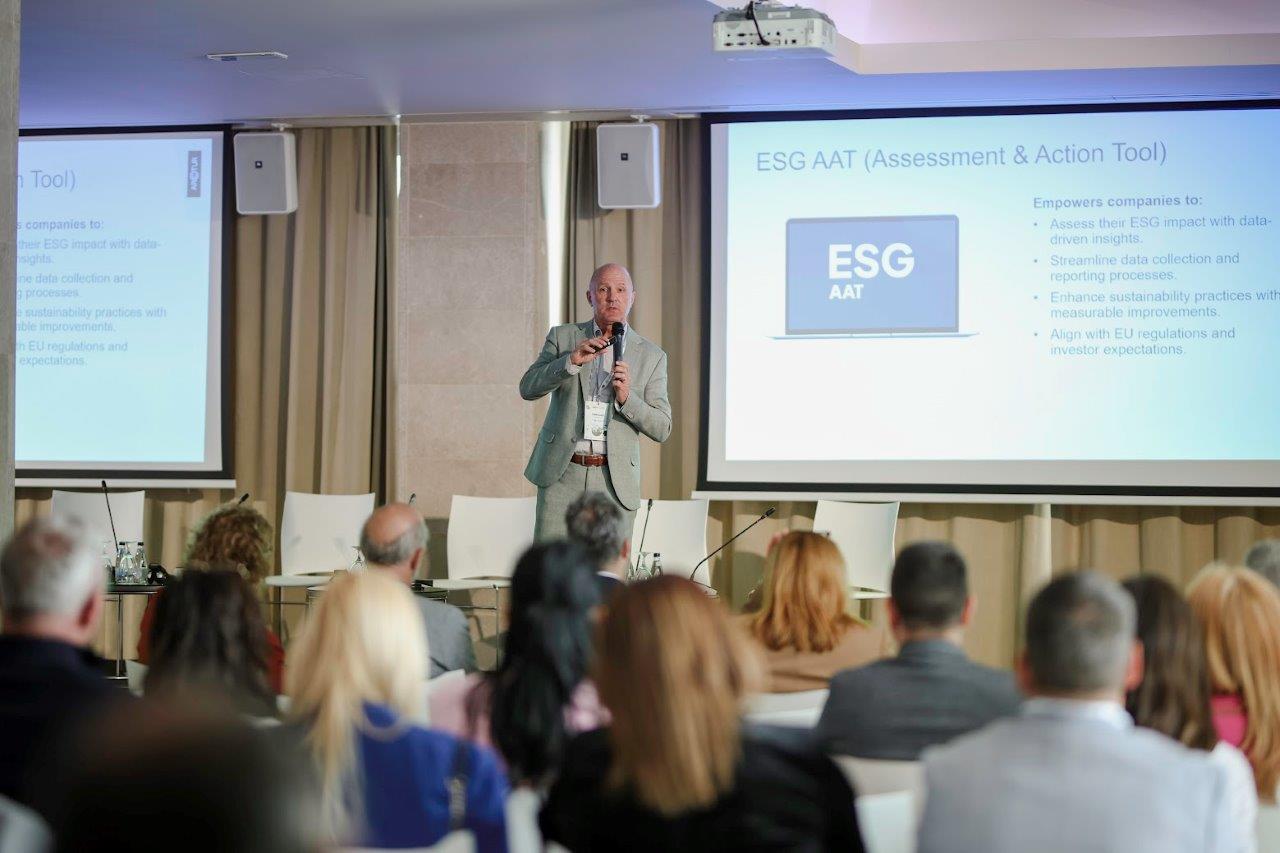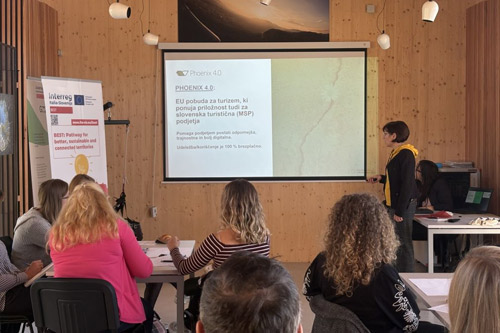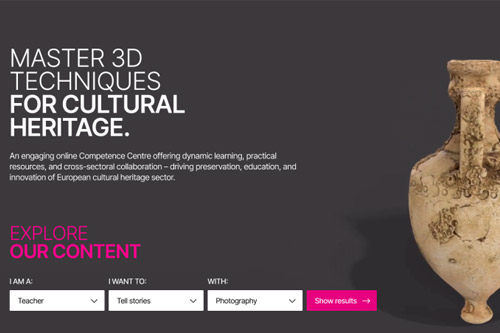
Herceg Novi, Montenegro — The coastal town of Herceg Novi hosted Ecoforum, an event focused on the transformation of tourism through sustainability, innovation, and resilience. The forum brought together thought leaders, policymakers, and industry professionals to discuss how the tourism sector can adapt to today’s challenges and prepare for the future.
Urška Starc Peceny from Arctur alongside Miloš Kovačević of the Tourism Organisation of Herceg Novi presented the findings of the TIM Explorer tool - their session explored how destination resilience, ESG (Environmental, Social, and Governance) practices, and data-driven strategies are increasingly vital to building tourism models that are not only profitable but also responsible and adaptable.
The speakers emphasized that the integration of ESG principles into tourism businesses is no longer optional. With climate change, shifting traveler expectations, and rising regulatory standards, destinations must now embrace ESG as a core part of their planning. They also highlighted how smart data collection and analysis can help tailor sustainable solutions that align with the needs of both travelers and local communities.
Following the presentation, Urška Starc Peceny moderated a panel discussion focused on ESG implementation in practice and challenges of implementation. The panel featured Damien Plant from Sustain Develop, Mat Roberts of Kerry Roberts A, Prof. Dr. Ivo Županović, Veljko Milošević, and Zoran Daljević of Atlantic Group. Together, they examined how tourism stakeholders can move beyond ESG as a buzzword and use it as a concrete roadmap for action.
Discussions touched on measuring environmental impact, building governance structures that promote accountability, and ensuring that social responsibility is not sidelined in the pursuit of growth. The panelists agreed that ESG integration is not only beneficial for the planet and society but also increasingly demanded by investors, partners, and consumers alike.
One of the central takeaways from the session was that data and collaboration are key. When used effectively, data can drive better decision-making and create more resilient tourism ecosystems. Likewise, partnerships between the public and private sectors are essential to achieving long-term sustainability goals.
That is also what DEPLOYTOUR project, which was also presented at the forum, is all about - community building and ecosystem development, where a European tourism data community is being developed, as well as synergies with other data spaces, projects, and initiatives — ensuring a strong, collaborative foundation for the sector’s future.
On April 10th, Tomi Ilijaš, CEO of Arctur, also delivered a presentation on the Automated Assessment Tool and Environmental, Social, and Governance (ESG) criteria, emphasizing how these innovative solutions play a crucial role in shaping a sustainable future for businesses and society as a whole.

As Ecoforum continued, it reinforced the message that the future of tourism will be shaped by those who are willing to innovate, cooperate, and lead with purpose. The forum, part of the larger Vozim na struju initiative, continues to shine a light on progressive ideas and bold strategies aimed at creating a cleaner, more conscious tourism industry for all.



